Book Reviews by Genre: Literature
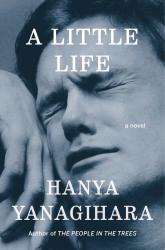
Until this book, I had not read anything that had impacted me this much. It was an absolutely heart wrenching book that was so beautifully written and was overall amazing. I love books that touch on the dark and uncomfortable parts of life and the human experience that aren't talked about very often and this is one of those types of books (check the trigger warnings before reading it because there are a lot of tough subjects in it).
A Little Life follows a man named Jude throughout his whole life. It focuses mainly on him and his friends when they met in college and follows them beyond, well into adulthood. It has flashbacks to Jude's childhood and the trauma he went through and how he coped with that trauma and how his relationships were affected. It has a strong message about friendship and has underlying themes of dealing with grief and abuse along with other tough subjects. This is hands down the best book I have read in a long time. The characters were incredibly developed and they felt real, it was one of those types of books that took me a long time to recover from after I finished it because I felt so close to the characters and the story. Even though some of the topics covered in this book are tough and uncomfortable, they are important to talk about and I recommend this book to anyone who enjoys raw and slightly gut wrenching books.
Reviewer Grade: 11
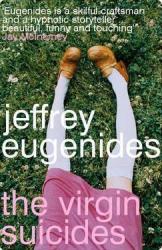
The Virgin Suicides is the elegy of the Lisbon girls, from the perspectives of the neighbors that are still haunted by them. The Lisbon family lives on a quaint suburban street in the Sun Belt, drenched in sunlight and white-washed shingles. Then one year, every Lisbon girl, starting with Cecilia and ending with Mary, commits suicide. This book is the observations and meditations of the boys across the street, the ones who loved them, who obsessed over them, who objectified them, and who watched them die one by one. The girls are doomed from the opening lines. The only question that remains is why they did it, and why our narrators can't let them go.
I read this book because I was told it was a staple of dark academia. It is not, no one here likes school. In reality, it is a treatise on girlhood, in all its insubstantial suffering. The first thing that struck me was the way the author sets the mood immediately. The entire book is dripping with malaise, the suffocating nature of sisterhood and parenthood on full display whenever the Lisbon house is described. The brief gasps of outside life are bright and crisp, while the references to the current day, middle-age life of the narrators is sad and listless. I wouldn't say this book is pleasant to read, but it is gripping in its complete commitment to its mood and setting. On that note, the choice of the author to tell the story entirely from outside perspectives was fascinating. The narrator is only described as "we", as the group of neighborhood boys who obsess over the girls in both childhood and adulthood. One conflict in the book is wondering if we are meant to sympathize with the boys who are scarred from the suicides, or see them as a commentary on the ways that the world seeks to capture and define teenage girls. I ended up seeing it as the latter, which likely made me view this book in better light than many of my peers. The boys actions always have an air of perversion about them, and at the end they seem to realize that all their breaches of privacy and decency have brought them no closer to understanding the girls. Another thing I liked about this book is the way that the girls are given a kind of privacy of thought from the narrators and the readers. Every attempt at scrutinizing their reasoning or emotions or motivations is always followed by a caveat. Nothing is certain with the Lisbon sisters, just the way nothing is every certain when we view the actions of others. The unknowability of their tight knit group gives them a dignity that their neighbors and community seem to want to violate constantly. This book is also a clear censure of suburbia. The neighbors try to do their best to help when they can, but still grumble amongst themselves about the Lisbon family leaving the leaves in their yard the fall after their youngest commits suicide. The great debutante balls and dances of the south are in full swing, but there is an undercurrent of corruption and distortion to the dancing and dating. The sexualization of the girls is also rampant, which, again, makes the book a lot harder to enjoy if you don't see it as a choice by the author in order to comment on it. In short, the suicide of the girls seems like a catharsis, a response to the disgusting and decaying world around them. Everyone around them represses their emotions, from their parents to the boys enraptured by them to their teachers to their peers. They are the only ones who get to set something free. The juxtaposition of the wailing EMTs to the quaint, straining neighborhood further demonstrates their freedom, even in their death.
This book did have problems. A lot of stuff is uncomfortable to read, even if viewed as a deliberate choice. The story often takes winding tangents that serve little purpose besides demonstrating the boredom and trivialities of suburban life. Still, the book is still a fantastic meditation on what its like to be a teenage girl, in all the wonderful and ghastly ways. I would recommend this book to anyone who is looking for good setting, shocking stories, and a good mystery to carry with them!
Reviewer Grade: 12
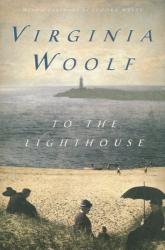
Sometimes, a trip to the lighthouse can take the entire life. Or our life is just one long journey to the lighthouse. Sometimes we don’t even realize how much we are in need of light that we see every night out of the window. We may not even notice how it directs us and helps not to get lost in this misty world. But what happens if this light disappears? We are left with two choices: either go on search of if, following the illusive glance, or find it inside of your soul.
Virginia Woolf’s novel “To the Lighthouse” introduces the readers to the Ramsay’s family and their friends, staying in the summer house in Scotland. As they are going through daily routines, we discover their personalities and stories, so different and unique. They agree and disagree with each other, inspire and discourage, give hope and take it away, create and ruin. Their days flow as usually until the light disappears from the house. It seems like it’s possible to turn everything back and keep the life normal, but everyone can’t help noticing the missing part, until the characters go on their own trips to the lighthouse.
The story is mainly written in a form of reflection. Virginia Woolf lets the readers see the characters and percept the world of the book through two of her main characters’ points of view. It shows, in an unobtrusive manner, how people depend on those whom they are surrounded with. The language of the book is figurative and complex, just as lives of its characters. It plunges the readers into such an atmosphere, where cold Scottish wind keeps your hands numbed, as you are walking down the coast, but the thought of someone caring about you does not let you freeze from inside.
An amazing book that will turn the time of reading it into a very special period of life
Reviewer Grade: 12
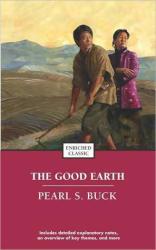
The Good Earth follows a man named Wang Lung accompanied by his wife, O-Lan. This story is told surrounding China in the early 20th century told in a classic rags to riches tale. Important themes are told through this story to express what China in the 20th was going through and challenges the people had to face. Some of these themes include the oppression of women and man’s relationship with the earth.
I have to admit, the first time I read this book I didn’t really like it. After talking to someone about the book, I decided to read it again and recognized its importance. Not only is the book informative, but it’s also an all around good book. There are many different plot points and character development pieces that go into this story. While reading it, it made me think… is this what people had to endure in China in the 20th century? Knowing this, it pulled at my heart strings a little bit. I absolutely love this book and would recommend.
Reviewer Grade: 8
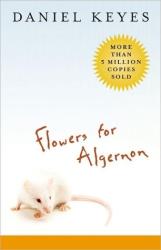
Flowers for Algernon is stunning commentary on the way society perceives intelligence and its connection to personal value. The creative liberties taken with this book to modify diction to match Charlie Gordon's knowledge create a more personal connection with the beloved narrator. I found myself celebrating the first time he used a comma or a metaphor. Although this book was difficult to read at first, I understand that those creative choices enhance the impact of the story later on in the book. The reason I wouldn't call Flowers for Algernon perfect is I feel some of the development in the middle diverted from his climactic conversations with the doctor and professor. The story seems to split into two at once: one of Charlie's emotional intelligence struggling to keep up with his knowledge, and one of his environment's reactions to his sudden genius. Though I enjoy both perspectives, I feel the conjunction creates clutter in what could be one flawlessly streamlined story. However, both stories are executed beautifully, and the journey of Charlie Gordon is both profound and emotionally charged. Flowers for Algernon is certainly a novel I'll mull over in years to come.
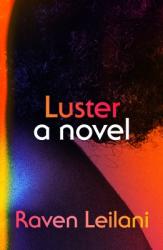
If it weren’t so gorgeously written, it’d be too wincingly real to read. I felt deeply connected to Edie in all her messiness and compulsive curiosity. Leilani’s characters are all their own: weird, self-possessed, sort of perverse, clearly loved into being.
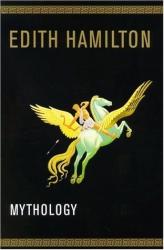
Mythology, written about Edith Hamilton, creates a timeline and family tree of the Greek gods and demigods. The book is based in small sections, so it is essentially a collection of assorted stories. For example, there is a section called "The Great Heroes before the Trojan War", and in that section there are specific synopsizes on Perseus, Theseus, Hercules, and Atlanta. I enjoyed the book because you can read it 5 minutes at a time because it does not take long to read a section. I recommend the book to mythology and history lovers alike.
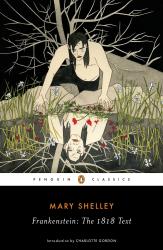
Frankenstein, a fictitious novel based Europe, details the account of a genius named Victor Frankenstein who creates a beast out of dead body parts. The beast then goes on to haunt him and kill everyone who Frankenstein loves. Frankenstein tracks the beast into the mountains and eventually speaks to him. The beast pleads Frankenstein to create a female beast, to which Frankenstein, comprehending of the horror that a lineage of beasts would survive, declines. The beast vows to kill every last one of Frankenstein's affections, and he does. Frankenstein is enraged and dedicated the rest of his life to tracking and killing the beast. The chase ends in the Arctic, where Frankenstein eventually dies. The beast sees his death and, with no more hope for a future mate, is overcome with grief.
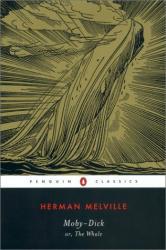
I, like most people, got wildly bored reading this book. Even then, it's one of my favorites. Moby Dick is a long and treacherous journey not for the faint of will, but lying at the end of the mud-covered path is a handsome bounty. For me, the ending of Moby Dick justified the means. Sprinkled throughout are interesting and bizarre chapters (and wise quotes on sleeping with drunken cannibals), but I believe the impact of the ending cannot be achieved without Moby Dick's arduous length. The hundreds of pages allow the reader to spend a massive amount of time with the characters (even if it's just Ishmael) and grow to appreciate the ship. Without that, the ending would fall miserably flat. So, despite the time it takes to read Moby Dick, the famous tale of a captain's monomania is one told beautifully.
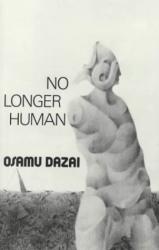
No Longer Human is a cultural phenomenon, widely known as the second most bestselling novel in the history of Japan. Within, Osamu Dazai explores the life of a man who feels that he has never been a part of humanity, and his desperate strivings to find a piece of happiness in a life full of terror and vice. The timeless, existential themes of the novel will haunt the reader past the last page.
I chose to read this book because I'd seen a lot of people all over the internet praise it as the saddest book they'd ever read. There are about a thousand videos and essays and think pieces about the depressing nature of this book, and how it can devastate and eviscerate emotionally. Weirdly enough, I don't see it. The book is definitely very sad, but to me it didn't extend very far beyond the other grimly written books about very sad people with very sad lives. However, the psychology of the protagonist definitely sets the book apart. Unlike other books of the same nature, this book cuts to the bone by showing the terrifying underbelly of humanity. The protagonist is paralyzed by fear because he comprehends what many of us forget: that we are at all times surrounded by our own apex predators. Each of us has our own deep desires that could stir us to violence at any given time. We lie and cheat and steal to get what we want, effortlessly wearing masks that can obscure our entire character and can last a lifetime. The protagonist isn't like other antiheroes of hardened books about the horribleness of humanity. He doesn't accept it, or rail against it. He is very much afraid of it, and does everything he can to get out of its way. The protagonist's perspective is also interesting in the way it views humanity. The detachment of the central character is clinical, and portrays the characters in an alien light. He is scared of humans, but he also doesn't understand them. He sees all hunger and desire as something strange, and he wonders how people can be so insincere so easily. But despite his abject horror of humanity, the protagonist is slowly transformed into everything he despises and cannot understand. Perhaps the most fascinating part of this tale is how the protagonist is dragged, slowly but steadily, into the grips of humanity's vices and horrors.
Despite the intriguing nature of the protagonist's psychology, I didn't find the rest of the book as interesting as I thought I would. I was likely just disappointed that after all the build up, this amounted to another very well done, very sad bildungsroman in the vein of Catcher in the Rye or Little Friends. There's also issues with the way the writer portrays women, but since everyone in the book is fairly dehumanized it doesn't bother me as much as I thought it would. All in all, No Longer Human is a fascinating journey through the most base natures of humanity, all through the eyes of a man who feels disqualified from being human. I'd recommend this to someone who wants something dark and strangely fascinating. I would not recommend this to anyone who is anywhere close to being in a bad place, or anyone who got annoyed by Holden in Catcher in the Rye. This guy is ten times worse.
Reviewer Grade: 12
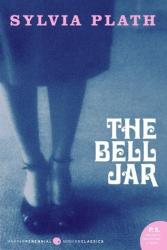
You will understand why she was so depressed and attempted suicide three times after reading this novel. It tells the tale of a young girl who suffers a lot throughout her entire life. All the events of her life are beautifully executed with the help of Easter's character in this novel. Sylvia wants to be a poet, but society forces her to be a housewife, have children, or someone else. Sylvia Plath's father dies when she most needs him. Being without a father means you are alone with creatures in this cruel world that does not care about anyone. She seems very lonely, and sometimes she feels like she is in a bell jar, like a dead baby. She is depressed by the silence. It is not the silence of silence, it is her own silence. The novel also depicts the situation of women in the 1940s they were supposed to do what their men wanted them to do. If the person is loyal, he should get the same person, but that is not the case with Slviya Plath. Every boy friend she finds has an affair with another woman. She sacrifices her body for the peace of mind and her virginity for the sake of experience.
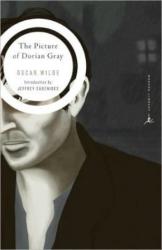
As a lover of writing, poetry, and pretentious philosophical tangents on the measurements of good art, I was bound to enjoy Wilde's only novel. The Picture of Dorian Gray is a beautiful tapestry of tragic corruption and its devastating effects. Albeit at times Lord Henry seems to ramble on about entirely uninteresting subjects, the overall experience of the book is short and sweet. The prose is flowery and elegant; the interactions between characters are brief but natural. Major character development occurs off-screen, which was disappointing, but within 160 pages one can only fit so much. Ultimately, I greatly enjoyed the ride, and The Picture of Dorian Gray has cemented itself as one of my favorites.
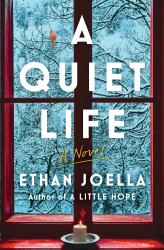
A Quiet Life by Ethan Joella is an emotional, heartwarming story about human connection. Joella’s story tackles grief and loss, all the while remaining light-hearted and hopeful. A Quiet Life takes on the perspective of three different people, all struggling with their own hardships and trials. Chuck, an elderly man mourning the death of his wife, must decide whether or not he should venture back to their vacation home for their yearly trip. The pain is too much to bear, and imagining himself being there alone is heart wrenching. Ella, a single mother working a newspaper job, is trying desperately to find her missing daughter. Kirsten works at an animal rescue and tries her best to serve the community. However, after the quick and tragic murder of her father at a convenience store, Kirsten can hardly find the light in life again. A Quiet Life shows the intricacies and hardships that come with loss, all the while connecting every missing piece, and showing us how togetherness is what keeps us afloat.
(Reviewer Grade: 12)
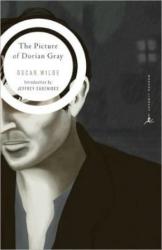
At first, I only picked this book as a classic for school, but I quickly learned it's a classic for a reason. I'd known of the general plot of the novel where a portrait reveals the ugliness of the inside of a man while he remains young, but the way it's written and described makes the full story. The story starts with painter Basil basically putting so much work and devotion into a portrait of Dorian Gray, the painting comes to life. Dorian wishes to stay forever young, and the painting reflects his evilness (vanity, etc.). I enjoyed the sense of mysticism and how everything connects to the theme of appearances are not what they seem. Dorian looks beautiful, but his actions (the thing that makes a person) are grotesque and horrid. The gothic fiction genre is reflected by the dark evilness of Dorian's actions and the magic of the portrait. This book is my favorite class I read this year and the plot surprised me with the characters always returning and a sense of incompletedness when characters leave. If you're looking for a medium-read classic with thought-provoking ideas, then this is for you!
Reviewer Grade 12
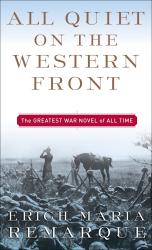
All Quiet on the Western Front by Erich Maria Remarque can solely be described as an ingenious masterpiece. The book, a historical fiction novel, was written in 1928 about German soldiers' experiences during World War I; Remarque used his experiences as a german soldier to accurately portray the terror of war. The main characters, Paul Bäumer, Albert Kropp, Franz Müller, and Ludwig Behm, are remarkably realistic and, throughout the book, go through changes caused by the nature of war, essentially turned into humans run by animal instincts. Throughout the book, Remarque ripes away any possible notion of romantic ideas relating to war and perfectly encapsulates the true terror of war. Overall, I wholeheartedly believe that everyone should read this masterpiece.
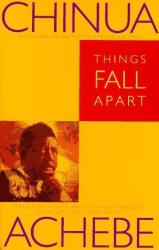
Things Fall Apart by Chinua Achebe is considered a literary masterpiece, with its unique perspective on colonization that isn't always told. Okonkwo, the main character with three wives and the memorable reputation of a great wrestler, has a great fear of losing any part of this status and ending up like his father. This fear is realized when Okonkwo is exiled (for an ironic crime) and returns to find his community overrun by Christian missionaries. They bring a seemingly-noble message of salvation, but it is only a matter of time before blood is spilt. Learning about Ibo culture through this book was a really cool experience, so I don't regret reading it. But, why is it that "classics" always have to include raging misogyny? Okonkwo almost constantly beat his wives, and despite this technically being historically accurate, I found the repetitiveness to be unnecessary. Despite this, Achebe's use of language, such as proverbs to create a story that feels like a fable, was something that I haven't seen before. Gaining a new perspective throughout reading Things Fall Apart was an experience I think everyone should have.
Grade 12
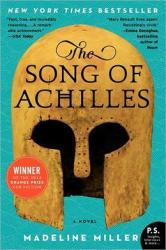
The Song of Achilles was written in 2011 by American writer Madeline Miller. It is an adoption of Homer's Iliad and is a retelling of the great Greek warrior Achilles. The tale is told from the perspective of Patroclus. The novel follows the romantic relationship between Patroclus and Achilles as it is written in the novel.
*"He is half of my soul, as the poets say."*
*Madeline Miller, by using their relationship, is trying to show the role of men in ancient Greek society and how homosexuality was viewed in that era. The most pleasing thing about this novel is Miller's poetic writing and how beautifully she has painted the vivid picture of the emotions of all the characters, and it has taken me into another world while I was reading.
There are some debates that have been going on for centuries until today. For example, the relationship between Patroclus and Achilles has been debated for centuries, and still there is no clear evidence of whether they were lovers or close comrades. The second one is that Helen was the cause of the Trojan War, and destroying thousands of ships and men just for a woman is foolishness. As Dr. Faustus says:
*"Was this the face that launched a thousand ships and burnt the topless towers of Ilium?"*
Mean by there, is she that much beautiful that kings are willing to destroy anything?
The novel also contains many themes. The first one is *"honour and pride".* Achilles fights for his honour because he wants his name to be remembered, in the same way Agamemnon and Menelaus fight for their pride, which they lost when Helen was kidnapped by the king of Troy. For Greeks, honour and pride is everything, and they prefer to sacrifice their lives over honour and glory. They believe that sometimes violence is needed to prove one's pride. As it is set down in the text:
" *The sons of Troy are known for their skill in battle, and their deaths will lift your name to the stars."*
The second major theme is *impulse to show power*. Achilles, Agamemnon, and Menelaus fight for power and want to have control over their lives; one of the biggest reasons for participating in battle is to showcase their power. Besides this,the powerlessness of women like Helen, Briseis, and Deidmeia can be seen in the novel. Agamemnon treats Briseis badly as a wench or a war prize, and also, Helen is forced to choose a husband even though she doesn't want a husband.
*To conclude* , the novel is a wonderful piece of literature and deserves to be read because the way Medellin Miller has described all the events and feelings of all the characters makes you feel the same.
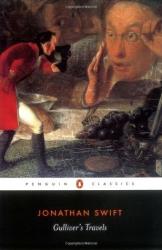
Part of the reason I rated this book low is because I had high expectations. I read an abridged version as a kid and I thought the general story was cool. Part of the reason I rated this book low is because Swift fills the reader's head with unnecessary details until important plot points are lost in the middle of description paragraphs. The events that take place in Gulliver's Travels are interesting, sometimes clever references to 19th century politics and general social commentary: Gulliver passes through a variety of islands with caricatured citizens. Although I do not expect Gulliver or the citizens of these islands to be developed characters, as their only purpose is to serve as a means to tell the story, the intrigue of the plot dissolves when paired with Swift's writing style. Swift is a meticulous writer who insists on heavy descriptions of every detail and, consequently, there is little to no stylistic separation between key points in the story and the personal life of a particular citizen. Gulliver's Travels is also a relatively short read at around 300 pages, so it is fast-paced compared to other books written in similar detail, which further muddies the plot. The dialogue in this book is also near nonexistent; I can't recall a single line. When Swift means to relay information between characters, he will most often do so in paragraph format. As someone who usually enjoys classics, I am disappointed to say I really only valued the skeletal plot outline rather than the book itself.
Grade: 11
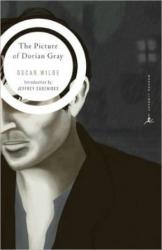
Imagine what could happen, if people possessed magic mirrors that reflected not their faces, but their souls? Dorian Gray, from the novel by Oscar Wilde, gets a chance to fully experience it.
An artist, Basil Hallward, paints an incredibly realistic portrait of an even more incredibly handsome young man. As he’s still innocent, the picture reflects just his appearance, but later, when Dorian starts doing cruel and ugly things, the portrait begins changing too. Every sin, every crime against the other human reflects on the face on the canvas, adding more and more ugly wrinkles, spots and ulcers. His own face, however, stays unaltered, always fresh and young. The portrait shows not what he looks like, but what he truly is. Finally, when Dorian kills the artist, he reveals the picture and the face of an old disgusting man on it.
The entire transformation proves what a high price one has to pay in order to realize his wish to stay young and attractive all the time. Under the influence of his old friend, Dorian loses his life guides and devotes his time to looking for new enjoyments. He does not understand that true beauty comes from the inside. It’s not necessarily visible. It’s not on your face, it’s in your thoughts, words and actions.
The novel is written in magical realism, so even the most incredible plot turns feel like something natural. It involves from the first page and makes the readers go through all the transformations together with the main characters.
Reviewer Grade: 11
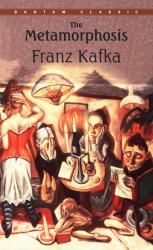
One morning he woke up and discovered himself being a beetle. Not the best beginning of the day for sure. The worst part was that he had to live in the insect's body till the end of his life.
The immediate problems that Gregor faced, such as being unable to get out of his bed, would’ve perhaps been amusing, if he was not afraid of his family’s and boss’s reaction that much. “I will be late for my train to work!” I wish that was my biggest worry if I turned into a beetle. Panic, helplessness and pettiness that he exuded were so strong that I could feel it surrounding me. Written in Kafka’s original style, all the emotions and perceptions are strong and relatable, which makes even the most impossible action seem realistic.
The novel starts hurting, when Gregor notices how strongly his family’s attitude towards him has changed. They all are disgusted with a new creature in Gregor’s bedroom (which we can’t really judge them for). Grete, his sister, seems to be the only one who still believes that her brother’s mind and soul are captured in the beetle’s body and tries her best to take care of the huge insect. As the time goes, Gregor’s behavior changes a lot. His thoughts become more of beetle’s as well as his tastes. Having some rotten food for dinner? Delicious!
The way that he describes the new vision of the world around him, opens a lot of hidden information and evokes true sympathy and sorrow for his fate.
The novella leaves a lot to think about. The transformation that happened to the main character can be interpreted in different ways as well as the changes that his family members go through, trying to adjust to a new life with a human-size beetle living in their house.
Metamorphosis is a great choice for those who feel like they’re living an insect life and their routine is just a big dung ball that they have to push forward all the time.
Reviewer Grade: 11
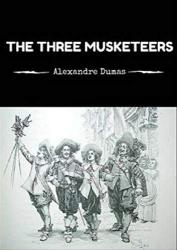
Despite its lack of general theme, Dumas' The Three Musketeers is a beloved classic. The story follows a young man D'Artagnan as he serves under M. de Treville, the head of the French king's musketeers (Athos, Porthos, and Aramis). As he spends more time with the musketeers, D'Artagnan is caught up in the convoluted politics of the king and jealous cardinal. Somehow, however, in the epic tale of adventure, companionship, romance, and betrayal, Dumas' message is lost to the fast-paced plot. His use of dialogue is masterful in creating realistic suspense between characters; not in all 600+ pages is there a dull moment. Overall, however, The Three Musketeers is best read for an interesting story and nothing else. The main cast is well-developed and serve as contrasts to each other. Although the plot itself is well-constructed, the events lack any greater relationship to each other beyond causation. When I picked this book up, I expected the adventure to follow some sort of formula to parallel D'Artagnan's personality; his personality, however, has little impact on the general plot. Dumas' talent in diction and ability to tell a story is evident, and The Three Musketeers was an enjoyable read, as long as you know what to expect.
Grade: 11
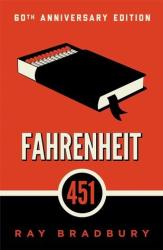
451͒ Fahrenheit is the temperature when paper starts burning. Guy Monteg knows it for sure. He’s a fireman. However, his job is not to put out the fire, but to make it and burn the books. He likes his job, but there is something that he hides from everyone, including his wife.
From every fire, Guy saves a book. In his society, books are forbidden, as they are considered to make people unhappy, evolving complicated emotions and making the readers think. No books means no worries, but a careless life, full of joy and simple entertainment.
One day, Guy Monteg decides that he does not want to live like he used to anymore. He finds a former English professor and asks to teach him to understand what he reads about. Together, they make a plan to save more books in the hope that war will destroy the existing system that they have to live in.
But any secret becomes clear, and the next night Guy gets an order to burn his own house. He destroys it with a flamethrower, as well as his captain, co-workers and the Mechanical Hound.
Monteg escapes. He does not know though, that after all the dangers on his way, he will finally find his destination and meet those whom he will belong to.
It may be hard to feel, but the book is sharp and straightforward. Through the adventure in a fictional universe, Ray Bradbury shows us what might happen, if humanity keeps moving in a direction that will only satisfy basic needs and bring momentary pleasures. I’m sure, some of us can already recognize ourselves with shame in Beatty or Mildred. We’ve already made that first step on the path to the world, where people burn books. This dystopia teaches us that we can always make a difference in the world and change our lives the way that we believe is right. There will be those who will try to destroy you, but there will also be those, whom you will be able to rely on.
The novel creates a tense engaging atmosphere, where you can smell threat in the air and hear the chase behind your back. It does not let the reader go till the very end and stays in mind days after.
Reviewer Grade: 11
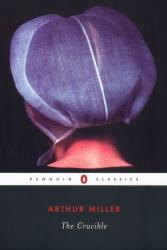
Hysteria, spreading throughout Salem, Massachusetts in the 17th century. Teenage girls, being accused of witchcraft for dancing in the woods. A puppet with a needle that can cost someone’s life. Agreeing on execution in order to protect the good name for your family. Mass trials on people being suspected of doing magic. Sounds crazy? Welcome to the world of The Crucible.
The play by Arthur Miller takes us to Salem in a period of witch trials. Everything starts pretty prosaic: a girl named Abigail wants to get love from a local farmer, John Proctor. As it often happens, she finds a love potion the easiest way to reach the desirable goal, however, she, her friends and the family slave Tituba get caught on doing this ritual late at night.
Nobody wants to be punished. Nobody will believe a slave over his own daughter or niece. Considering these two statements, Abigail decides to avoid a punishment by accusing Tituba and the entire list of other women in a town of being witches.
And here is when things start to go heels overhead. Like a huge snowball that captures everything that is on its way, panic enhances more and more people around. Men and women are being executed for no true reason. Even an expert in demonology is invited to take part in the case. And in all this chaos Abigail makes another attempt to get a chance for a future together with John Proctor.
The action develops dynamically in the play, and the characters add more tension to the plot with their bright personalities. You can’t stay indifferent. You either love or, more likely, hate them. A lot of situation are ironic and absurd, however, the play tastes bitter, when you realize how many people had to struggle because of someone’s stupid wish and lack of responsibility.
The book refers a lot to the time of McCarthyism, which had impacted the author’s life in particular. It makes a strong impact on the audience, especially, in the end, and leaves the readers with a lot of questions: Do people change? Is reputation worth sacrificing your life? Whom to believe and what to deny?
Reviewer Grade: 11

An attempt to create an independent sovereign state, liquidate domestic and foreign enemies and get rid of vestiges of the past, made by… animals. The only fact of animals ruling and managing their own lives sounds absurd enough, but what if under the masks of pigs, horses and dogs real historical figures are hiding?
George Orwell showed brightly the allegorical reality of totalitarianism and communism in his novel Animal Farm. A fairy tale for grown up readers, the book offers an opportunity to observe the story of animals who tried to get independence from their owner and build a society where everyone’s needs and desires would be equally satisfied (sounds a little utopical, doesn’t it?)
Inspired by the Old Major, two pigs, Napoleon and Snowball, supported by all the residents of the farm, carry out a coup d’etat and banish the farmer Mr. Jones. They take the lead and create the laws of the newly created state, the most important of which is “All animals are equal”. However, as the time flows, it turns out that ruling a society is not as easy as it seems to be, especially if at the same time you are trying to benefit from the power that you possess. The animals have to go through propaganda, repressions, socialist competition, ideological pressure and several other social and political changes. Most of them believe their government blindly, and only a few trust their own eyes more than the media. Napoleon, now the only ruler of Animal Farm, discovers that fear and lies are not the worst tools to use, if you want to keep a state in order, especially when the majority of the population consists of sheeps. He goes father and father from where he began and, like many leaders before and after him, becomes a tyrant trying to keep his position and privileges. At the end, he brings the animals back to what they tried to destroy: a totalitarian system where one stands above everyone else. “All animals are equal, but some animals are more equal than others”, the new Commandment says.
The book is written in a simple language and the allegory and similes make the story easy to understand even for the younger readers. All the processes and events mentioned in the novel repeat one of the darkest and most tangled periods of history. But, shown on the example of animals, they make the readers wonder how people, who faced them in real life, could not notice that they were being trapped and fooled.
Compared to some other novels by George Orwell, Animal Farm is pretty easy to read. It would be a perfect choice for those who want to get a better understanding of political and historical processes and enjoy a fictional story at the same time.
Reviewer Grade: 11
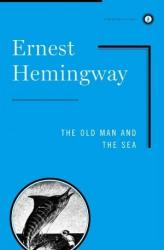
The story of Win and Loss, one of Ernest Hemingway’s most famous works, The Old Man and the Sea introduces us to a fisherman Santiago. He is old, but he has determination and a goal. He wants to catch his Big Fish. He does not give up even after eighty four days of failure and on the eighty-fifth day luck finally smiles at him. Big Fish is on the hook. Three days of confrontation between the fishermen and the fish reveal Santiago’s incredible inner strength and will power. But when he finally comes back to his hut, exhausted and barely alive, he’s left only with a skeleton of his dream and a poor illusion of a better life.
The deep symbols that the story contains can be interpreted in many different ways. Some of the readers may find the old man’s hunt as a waste of effort on a goal that is not worth risking his life. Others, however, will discover Santiago as their role model and an example of undefeatable human nature and endurance on the way to the dream. But this controversy and ambiguity is exactly what makes the book so unique and attractive to the generations of readers.
The language of the novella is typical for all Hemingway's books, simple and straightforward, however, this time the symbolic meaning is hidden under the coat of realistic story. It encourages the reader to think and reflect on the pages that he’s read and on his own life as well and find his own interpretation of the fisherman’s story.
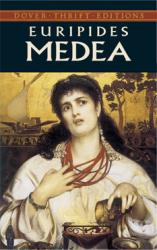
Medea by Euripides is a play about a princess in Greek mythology. She is betrayed by her husband when he weds another woman and Medea vows to take revenge. She plans to hurt everyone who hurt her, but by doing this she puts people who did her no wrong at risk. Will she end up getting revenge and living out her days or will she join the same fate that she curses down upon? I recommend this book to anybody who is into Greek mythology or would like to get into it. This is a fast read of about 50 pages.
Jaala 12
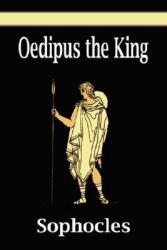
Oedipus the King by Sophocles is a Greek play that follows the tragedy and downfall of this King. He is presented by a messenger that a disease has spread across his land and he needs to save his people. He sets out in search of this issue, but slowly comes to the realization that this something is a someone within his borders. What if this someone who needs to be eradicated is one who governs it? I would recommend this book to anybody who likes Greek mythology or the adventure genre.
Jaala 12
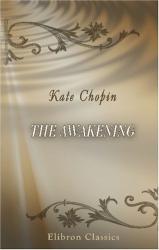
The Awakening by Kate Chopin is a fictional novel that questions what it is to be an independent woman in a male dominant society. Edna lives in the Creole society in New Orleans that values the idea of women being a housewife. Edna strays away from this ideal and attempts to break the boundaries of what women think and can do. Is Edna strong enough to break these barriers or will the barriers break her? I recommend this novel to anybody who loves twists and turns and what it truly means to be independent.
Jaala 12
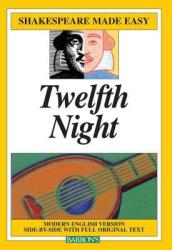
Great book! It's actually so hilarious because of the love triangle. Highly recommended!!
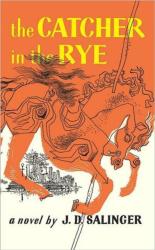
I don't understand why this is a classic. I only vagally understand the book. the main character, Holden Caufield, doesn't learn anything. I can't see any reason to read.